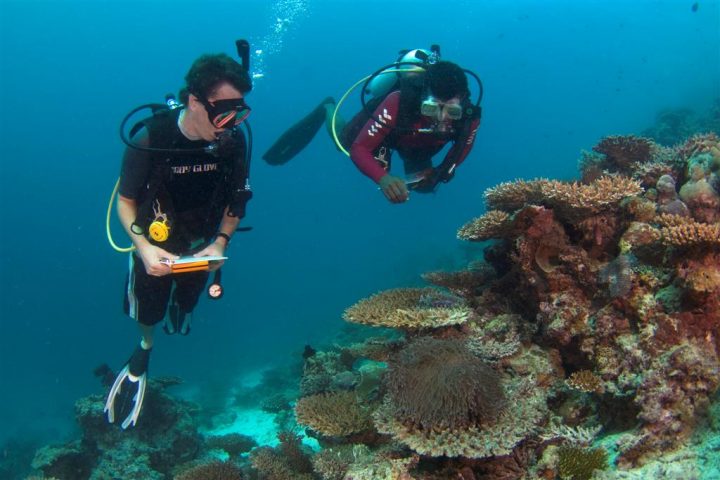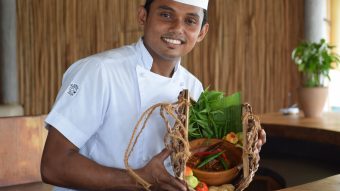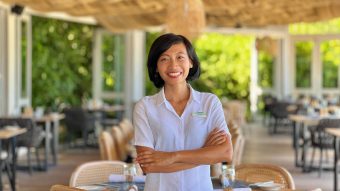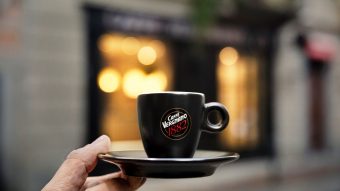
Banyan Tree Marine Lab serves as ‘home of conservation’ in Maldives for 19 years
The inauguration of the Banyan Tree Marine Lab in 2004 marked a significant milestone as the first resort-based establishment in the Maldives dedicated to safeguard the natural environment and marine ecosystem.
Operating under the guiding philosophy of conservation, restoration, education, and research while catering to both Banyan Tree Vabbinfaru and Dhawa Ihuru, formerly known as Angsana Ihuru, the pioneering Marine Lab has been instrumental in supporting essential fieldwork carried out by visiting experts.
Over time, the Marine Lab has expanded its role to become a leading advocate for sustainability initiatives conducted by both resorts, such as spreading awareness about marine conservation in local schools and nearby communities.
Marine Talk
The primary objective of the Marine Lab is to enlighten guests about the indigenous marine ecosystems. Through a weekly schedule of Marine Talk, lasting for 20-30 minutes, guests are educated on topics such as coral reefs, the current challenges they confront and proactive measures to safeguard them.
Citizen Science
Twice weekly, snorkelling sessions with the resident marine biologists are conducted to document various species and monitor local populations residing in the house reefs.
Within this process, the team meticulously record three distinct categories of marine life: megafauna, groupers, and butterflyfish. These encompass an array of captivating creatures, including reef sharks, nurse sharks, eagle rays, turtles, trevallys, peacock groupers, crown of thorns starfish, and racoon butterflyfish.
The presence and abundance of megafauna populations play a pivotal role as indicators of the overall marine ecosystem’s health. They offer insights into prey availability, water quality, and the overall ecological integrity of the area.
Groupers, unfortunately, have faced considerable decline in population due to overfishing, primarily driven by their high value in fish markets. Nonetheless, they serve a vital ecological function by controlling the populations of herbivorous fishes, thus preventing overgrazing of corals, and promoting reef recovery.
Butterflyfish, known as ‘bioindicators,’ have a symbiotic relationship with coral reefs. By closely monitoring their populations, the team gain valuable understanding of the impact of coral bleaching, pollution, and habitat degradation on the health and vitality of the reefs.
Reef Cleanup
Ensuring the cleanliness of the reef is crucial to enhance the survival prospects of corals and protect the overall reef ecosystem.
Two predators are actively removed – the crown of thorns starfish (COTS) and the pincushion starfish (PINS), both notorious for consuming coral polyps, resulting in significant coral loss throughout the reef.
These species are referred to as ‘corallivores’ due to their primary diet consisting of corals. The crown of thorns starfish can devour up to 75 square feet of corals annually, far surpassing the rate at which we can grow and replant corals.
Coral Nursery
At the Marine Lab, one of the major initiatives revolves around coral restoration, aiming to breathe new life into the reefs.
The coral rope nurseries offer a promising solution for giving a second chance to coral fragments that break off from the main structures. These fragments, also known as coral recruits, are carefully collected, and affixed to rope nurseries, which typically span 10 metres in length and 2 metres in width.
Experienced divers staying at Banyan Tree Vabbinfaru and Dhawa Ihuru are invited to join the resident marine biologists in this meaningful endeavour.
Electric Reef
To enhance the preservation and restoration of local biodiversity and coral reefs, three electric reefs have been implemented and strategically positioned across both islands. This innovative approach fuses technology with ecology, yielding more efficient conservation outcomes.
An electric reef comprises a sizeable metal framework linked to a low voltage power source, generating a localised electronic field that facilitates increased calcium deposition on the metal surface.
The Banyan Tree Foundation pioneered the integration of this technology into the Maldives’ reefs with the construction of the Barnacle in 1996, way before the Marine Lab was built.
Subsequently, the Necklace and the Lotus were put together in 1998 and 2001, respectively, further extending the network of electric reefs to amplify our conservation efforts.
Over the past 19 years, the Banyan Tree Marine Lab has been a beacon of conservation and sustainability in the Maldives,” said Nicholas Hardman, Regional Marine Lab Manager. “We are incredibly proud of the progress we have made in coral planting, protecting house reefs, and promoting eco-friendly practices. Our commitment to fostering environmental awareness through educational activities remains steadfast as we continue to inspire positive change in our guests and the wider community.”
Banyan Tree Vabbinfaru is a luxury barefoot tropical paradise at the heart of North Male’ Atoll, 25-minute away from Velana International Airport via speedboat. With 48 pool villas dotting around the island, privacy and relaxation can easily be attained. Stay at least 3 nights and save up to 20% off the best available rate, which includes daily breakfast and dinner, plus complimentary speedboat transfers and sunset cruise. Find out more about this offer via Stay More Pay Less | Banyan Tree.
Situated approximately two-minute away via speedboat from Banyan Tree Vabbinfaru lies Dhawa Ihuru, a distinct island retreat of its own with 45 villas, and dubbed as “one of the best house reefs” and “diver’s paradise” in the Maldives. Discover Ihuru Island and gained flexibility with its villa and breakfast offer via Dhawa Ihuru Maldives | Dhawa Hotels.
Be in the know. Explore more about living a “sustainability culture” or download the Marine Lab Information and Activity Guide.





